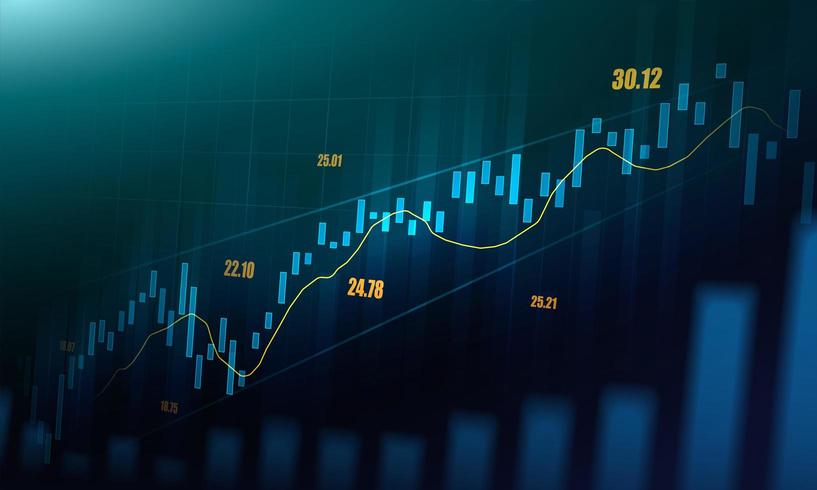Introduction
The turbulent realm of the foreign exchange (forex) market, where fortunes are made and lost in the blink of an eye, has long been shrouded in speculation and suspicion. While this vast financial ocean provides opportunities for traders to ride the waves of currency fluctuations, disturbing allegations of market manipulation have cast a dark shadow over its integrity. Delve into this riveting exposition as we navigate the complex web of factors potentially influencing the ebb and flow of global currencies, unveiling the truth behind the forex market’s most disconcerting dynamics.

Image: www.bank2home.com
Market Dynamics and Players
The forex market is not a centralized entity, but an over-the-counter (OTC) network of banks, institutions, and individual traders, making it particularly susceptible to external influences. This decentralized nature, combined with the sheer volume of transactions – exceeding $6 trillion daily – creates a fertile environment for manipulative practices. Market players, seeking to profit by influencing currency values, resort to various covert strategies.
Central Bank Intervention
Central banks, as the gatekeepers of monetary policy, play a pivotal role in sculpting the forex landscape. Their decisions regarding interest rates, quantitative easing, and foreign exchange interventions can have profound effects on currency valuations. While these measures primarily aim to achieve economic objectives, the line between prudent central banking and market manipulation is often blurred. For instance, if a central bank artificially weakens its currency to boost exports, it may distort the market’s natural equilibrium.
Commercial Bank Collusion
Commercial banks, with their vast global presence and access to information, are not immune to the allure of manipulating the forex market. In 2013, a major scandal erupted, implicating several banks in a coordinated effort to rig benchmark exchange rates, benefiting from the resulting market distortions. Such collusive practices not only undermine market integrity but also damage the trust of retail traders and investors who rely on accurate pricing.

Image: learn-forex-trading.eu
High-Frequency Trading
High-frequency trading (HFT) algorithms, lightning-fast electronic programs, have proliferated in the forex market. While HFT can enhance liquidity, it also raises concerns about fairness. The sub-second speed of these algorithms allows firms employing them to capitalize on minute price fluctuations, potentially gaining an unfair advantage over slower-reacting traders. Critics argue that the speed edge granted by HFT exacerbates market volatility and undermines the ability of fundamental factors to influence prices.
Government Involvement
Governments, eager to protect their economies or manipulate exchange rates, have also been accused of forex market intervention. In 2015, Switzerland’s central bank suddenly abandoned its peg to the euro, resulting in a sharp appreciation of the Swiss franc. This move sent shockwaves through the market and led to accusations that the Swiss government had acted to protect its own interests, disrupting global currency flows.
Retail Trader Vulnerability
Retail traders, the backbone of the forex market, are particularly susceptible to manipulative practices due to their limited access to information and resources. Unregulated brokers, offering attractive bonuses and leverage, can lure unsuspecting individuals into the market. These firms may engage in unscrupulous tactics, such as widening spreads or manipulating trading platforms, intentionally hindering the success of their clients.
Expert Insights
“The forex market is not inherently fraudulent, but its complexity and lack of centralized regulation make it susceptible to manipulation,” asserts Dr. Adam Smith, a renowned financial economist. “Central banks, commercial banks, and high-frequency traders all have the potential to influence market outcomes.”
“Retail traders need to be vigilant and educate themselves about the risks involved,” advises Lisa Brown, a veteran forex trader. “Choosing reputable brokers, understanding market dynamics, and managing risk effectively are crucial for survival.”
Forex Market Is Controlled By
Call to Action
The forex market, despite its potential pitfalls, presents opportunities for traders with the knowledge and skills to navigate its complexities. To safeguard the integrity of this vast financial arena, concerted efforts are required from regulators, market participants, and individual traders. Transparency, fair play, and robust oversight are essential pillars in upholding the integrity of the foreign exchange market. As we continue to unravel the intricacies of forex market manipulation, let us strive to ensure that this global marketplace remains a fair and equitable platform for all.






